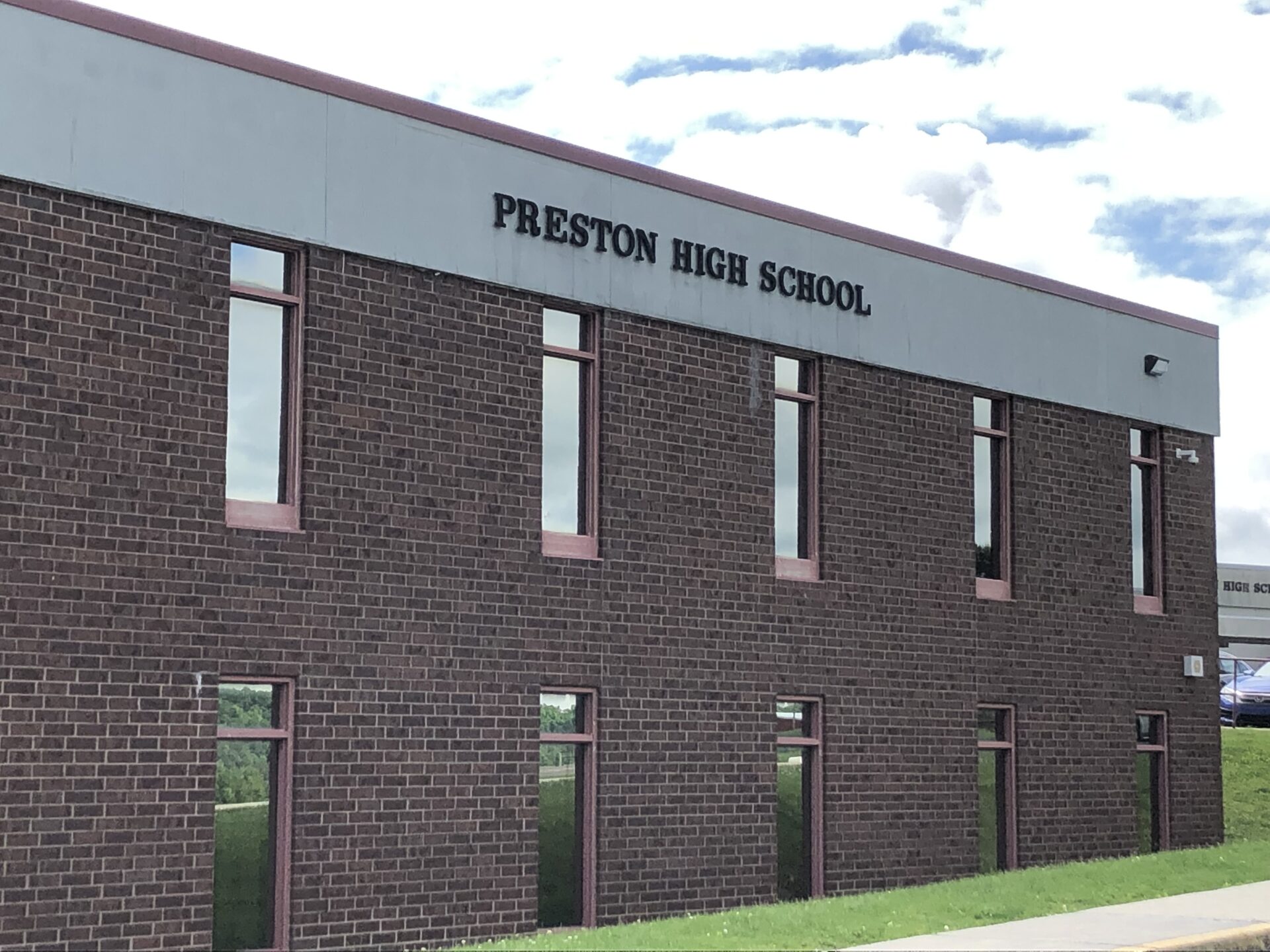Presidential elections tend to garner the most attention across the United States. That added excitement provides a unique opportunity to engage students in the classroom with real-world events.
Civics – along with economics, geography and history – are the pillars of West Virginia’s social studies curriculum for all K-12 courses.
Despite it being an election year, students at Preston High School like junior Carley Casteel say elections are just a small part of her social studies class.
“We’ve gone into past elections a little bit, but not anything current,” she said. “Just how different presidents have become president like Woodrow Wilson and Teddy Roosevelt.”
Casteel is taking contemporary studies, which does have a component focused on “the duties of citizens that are necessary to preserve global democracy.” On a personal level, she said it’s hard to engage with something she can’t participate in directly.
“I don’t really have much of a strong opinion solely because I’m only 16, and so I do have a while before I can vote,” Casteel said. “And I feel like giving such a strong opinion on something that I can’t really change just yet would not really have a use.”
Andy Shamblin is a Republican state delegate for Kanawha County. He’s also a 12th grade civics teacher at Nitro High School. Twelfth grade is when most students in the state take a civics-focused social studies course, a graduation requirement.
Shamblin said the political system is taught across the state’s K-12 curriculum, but it’s logical to focus on elections when students are closest to voting age.
“Twelfth grade is sort of the ideal place for it, because it’s, in essence, a capstone course that sort of ties together all the lower level history components that obviously do have a component with government, politics,” he said.
As an elected state representative, Shamblin said he would like to see more attention given to local elections. In his own classroom, he integrates the state legislature’s annual session into his course and teaches how to follow bills as they become law.
“But the national issues seem to captivate the most attention, and they’re the most dramatic, and students are most interested in those,” Shamblin said.
Per the state standards for the civics course, students are expected to debate their classmates on certain topics. Shamblin said an election year can elevate emotions in the classroom, but expectations of civility are established early.
“The key is to recognize that just because you may not agree with someone’s perspective, you can still understand it,” he said. “And I always emphasize too, that the greatest achievements legislatively in American history were founded on compromise: civil rights legislation, the constitutional convention itself. Had it not been for both sides compromising, we wouldn’t have a nation today.”
Danielle Barker is an 11th and 12th grade social studies teacher at Preston High School. She said like many other teachers, she switches up her teaching order to take advantage of the energy the election provides.
“So if we had the primary elections in the spring, I would change the way I teach, and I would talk about elections in the spring,” Barker said. “So this year, I talk about elections now”
She said something else that gets moved up in her plans is discussions about how the media influences public opinion and ideas. Like Shamblin, Barker said one of the bigger things she tries to foster in her classroom is civil discussion.
“We practice even with little questions like, ‘What are the most important American values to you?’” she said. “We practice with these little questions that aren’t so controversial. So that way, when we get to the controversial questions, we can go back. ‘Okay, well, we remember when we talked about this, like we didn’t scream at each other, we didn’t yell at each other.’ And I always try to have them backing in fact.”
Colson Manco is a senior at Preston High School. He said that classroom discussions help students identify what political values with which they most align.
“Politically especially, you know, being able to discuss and be able to agree to disagree,” he said. “She always encourages us to know, to, you know, say why we feel this way. But she wants us to be able to find the evidence to prove that we can stand behind this.”
Teachers also emphasize that for the civically minded, voting is just one action they can take. For example, Shamblin said he would like to see the state implement a community service requirement for graduation. Barker said she encourages students to take action other than voting on any issue they care about.
But not all students need to be pushed to engage with local government. Manco previously served as one of the student members of the county’s board of education. He said getting an education on the issues before voting is crucial for students, even if they won’t be voting next month.
“The fact is, we are the next generation of voters,” Manco said. “Whatever decision does happen in November, we are going to have the outcomes that come from this election in our first election that we’ll vote in. We’re educating the future of voters.”
Whatever the outcomes are after Nov. 5, rest assured students will be discussing them in civics classes across West Virginia.
